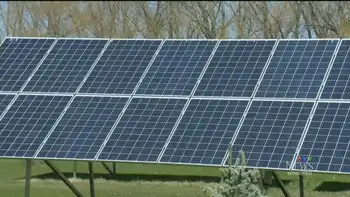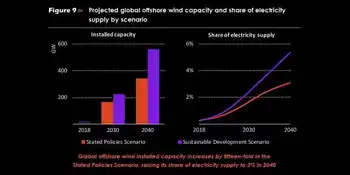Nuclear regulator short of crucial staff
OTTAWA, ONTARIO - Canada's nuclear regulator does not have enough specialists, a problem that could delay the approval of new nuclear power plants, the body's top official said recently.
Linda Keen, chief executive of the Canadian Nuclear Safety Commission (CNSC), said a growing industry and an aging work force are resulting in difficulty finding engineers and experts in fields such as fuel physics.
"The CNSC is already experiencing difficulties in hiring staff, which could delay projects. Without more qualified people, operators will have to wait, timelines will suffer," she told a meeting of the Canadian Nuclear Association.
"I cannot overemphasize that this acute shortage of qualified staff will affect our ability to respond," she said. Late last year the CNSC advertised 18 specialist positions but only filled four of them.
The CNSC, which employs around 400 people, regulates every aspect of the nuclear industry in Canada - power plants, plutonium and uranium mines, medical clinics and other facilities that use nuclear material, as well as the disposal of waste.
No new nuclear power plants have been built in Canada for 25 years but demand for electricity is soaring and some experts say it is only a matter of time before more reactors are needed. Canada has five nuclear power plants, which provide 15 percent of the country's electricity.
The power generator in the industrial central province of Ontario said last December it must start working now on planning nuclear power plants to replace facilities that are due to be retired in the next 20 years.
The CNSC released an information paper on Thursday outlining current regulations on building new plants - rules that Keen said are stricter than they were 25 years ago.
"They will be stronger requirements, there's no doubt about it. I think you'd say there are stronger requirements in aircraft and in a lot of other things," Keen told reporters.
She said in an ideal scenario, the process of approving and then building a nuclear power plant would take about 10 years.
Any bid to build a new plant would "dramatically increase the regulatory work of the CNSC," which has an annual budget of C$65 million ($57 million), she added.
Keen said she had asked the government for an additional C$126 million over five years. The CNSC recovers about 70 percent of its budget by charging users for its services.
Keen said her first priority was the safety of Canada's nuclear facilities, while the second was the refurbishment of existing power plants.
"The licensing of new power reactors will be in third place," she said in her speech.
Related News

EV Fires Raise Health Concerns for Firefighters
MIAMI - As electric vehicles (EVs) become more popular, the risks posed by EV fires to firefighters are becoming an increasing concern. These fires, fueled by the high-capacity lithium-ion batteries in EVs, produce dangerous chemical exposures that could have serious long-term health implications for first responders.
Claudine Buzzo, a firefighter and cancer survivor, knows firsthand the dangers that come with the profession. She’s faced personal health battles, including rare pancreatic cancer and breast cancer, both of which she attributes to the hazards of firefighting. Now, as the shift towards electric vehicles increases, Buzzo and her colleagues are concerned about how…




